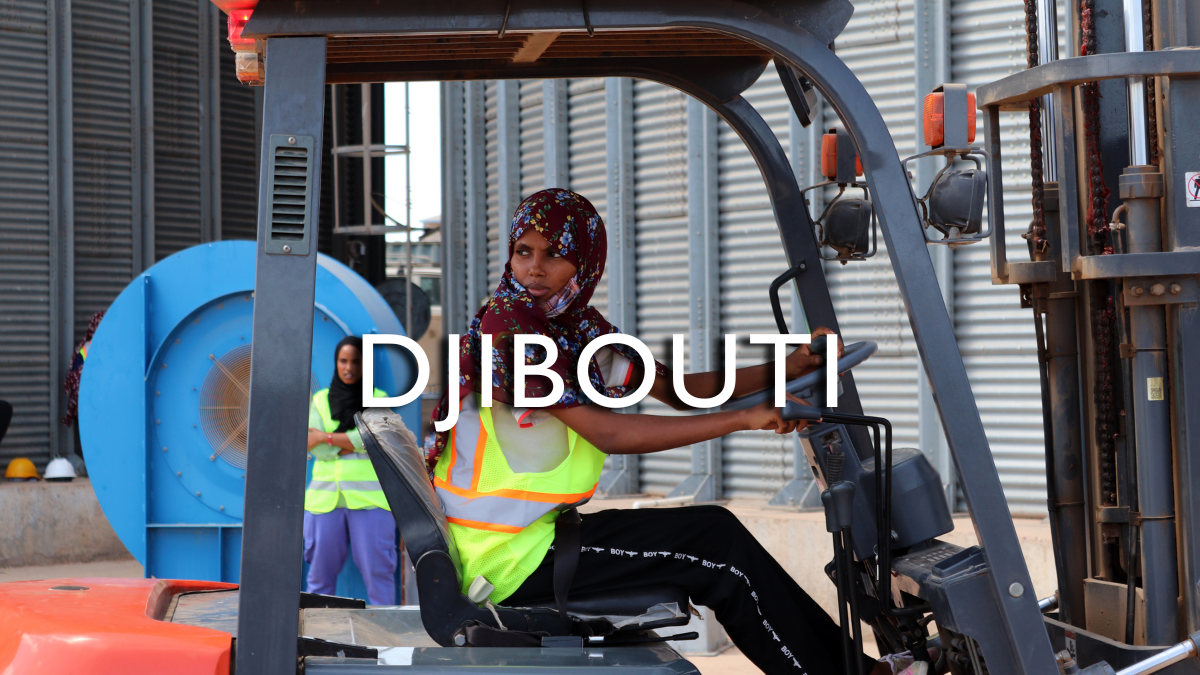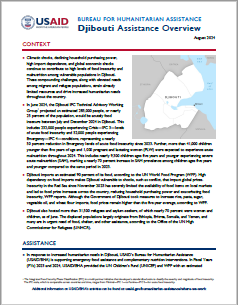
Climatic shocks, declining household purchasing power, global economic shocks, and high import dependence continue to generate food insecurity and malnutrition among at-risk populations in Djibouti. In addition, Djibouti hosts approximately 31,500 asylum-seekers and refugees from Eritrea, Ethiopia, Somalia, and Yemen, as well as hundreds of thousands of migrants from nearby countries. Resultant strain on Djibouti’s health and water, sanitation, and hygiene infrastructure has resulted in recurrent water-borne disease outbreaks across the country. These challenges are compounded by Djibouti’s susceptibility to a range of climatic shocks, including cyclical drought and flash floods.
In response to increased humanitarian needs in Djibouti, USAID is supporting emergency food assistance and complementary nutrition interventions benefiting asylum-seekers, refugees, host community members, and other at-risk communities. In Fiscal Year (FY) 2023, USAID provided nearly $4 million for emergency interventions and continues to provide multi-sector assistance in FY 2024.

